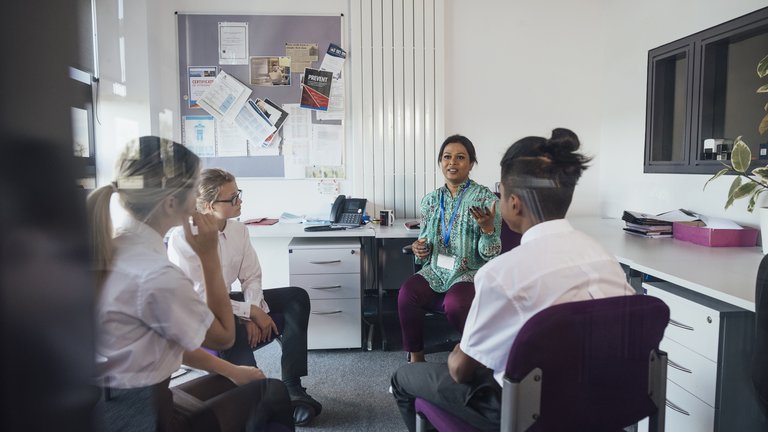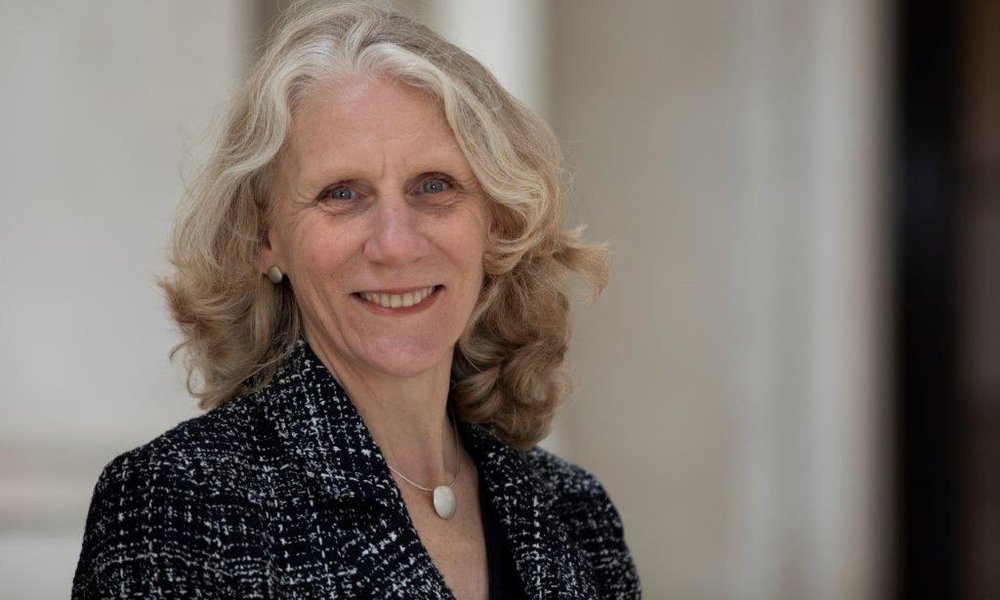News
Research impact: British Academy Innovation Fellow’s research influencing UK education policy and practice
15 Mar 2024

Research by British Academy Innovation Fellow Professor Arlene Holmes-Henderson and partner organisation Voice 21 Oracy uncovering how oracy skills can contribute to social mobility and employability is helping shape the UK’s education policy landscape.
Defined broadly as effective spoken communication and active listening, oracy education builds from classical theories of rhetoric and equips young people to play an active role in democratic life. A 2021 study from the University of Oxford, which Professor Holmes-Henderson contributed to, titled "Oracy after the Pandemic", revealed that while 75% of young people believe oracy to be 'very important,' less than a third (32%) reported that their school placed a high priority on oracy.
Recognising this, Professor Holmes-Henderson, the Oracy All-Party Parliamentary Group and Voice 21 collaborated on a report titled “Speak for Change”, which is cited as informing the Labour Party’s mission to break down barriers to opportunity, finding that stronger communication skills are associated with better behaviour at school and improved long-term outcomes.
The Department for Education (DfE) included ‘high-quality oral language (sometimes known as oracy)’ in its recently published outcomes of the review of the Initial Teacher Training Core Content Framework and Early Career Framework, meaning that all newly qualified teachers in England will reflect on how they facilitate speaking and listening in their classrooms.
Together, Professor Holmes-Henderson and Voice 21 have facilitated the first large scale analysis of oracy’s impact on young people and their teachers, with a particular focus on confidence.
The analysis summarised in Holmes-Henderson’s research demonstrates that developing spoken language, including vocabulary, is essential for the academic and social progress of all children. This is because broad underpinning knowledge such as vocabulary and syntax support later reading success, making it an essential building block to communication and learning.
Holmes-Henderson’s research, which informed Ofsted’s English research review, raises the importance of spoken language, listening and rhetoric for learners in the 21st century. By collaborating with colleagues in Norway, where oracy forms part of the Health and Wellbeing curriculum, and in Slovenia where rhetoric is taught in primary schools, Professor Holmes-Henderson is ensuring that policymakers, school leaders and teachers across the UK are benefitting from the best possible research evidence.
Professor Holmes-Henderson said:
"We can teach young people to be persuasive by learning lessons from the past. Classical rhetoric provides a framework for structuring communication, engaging an audience and listening critically. To construct and deconstruct arguments effectively, rhetoric is key.
"It is great to share my research with the policy and charity communities. Together, we will improve the quality of civic dialogue."
Amy Gaunt, Director of Learning, Impact and Influence at Voice 21 said:
“It has been a privilege to work alongside Arlene to further understanding of oracy education and advocate for it to be given greater status in the education system.”
Voice 21 have today announced the launch of a Commission on the Future of Oracy Education in England, at their annual Speaking Summit, to be chaired by Geoff Barton, outgoing General Secretary of the Association of School and College Leaders (ASCL).
The Commission will set out the aims and purpose of oracy education in school and propose a blueprint for how an entitlement to effective oracy education can be delivered as part of a child’s statutory education.
The Innovation Fellowships Scheme (Route A, Researcher-led) provides funding and support for early-career and mid-career researchers in the humanities and social sciences to partner with UK-based organisations in the creative and cultural, public, private, commercial, or policy sectors.
Contact the press office
For further information contact the Press Office on [email protected] / 07500 010 432.

